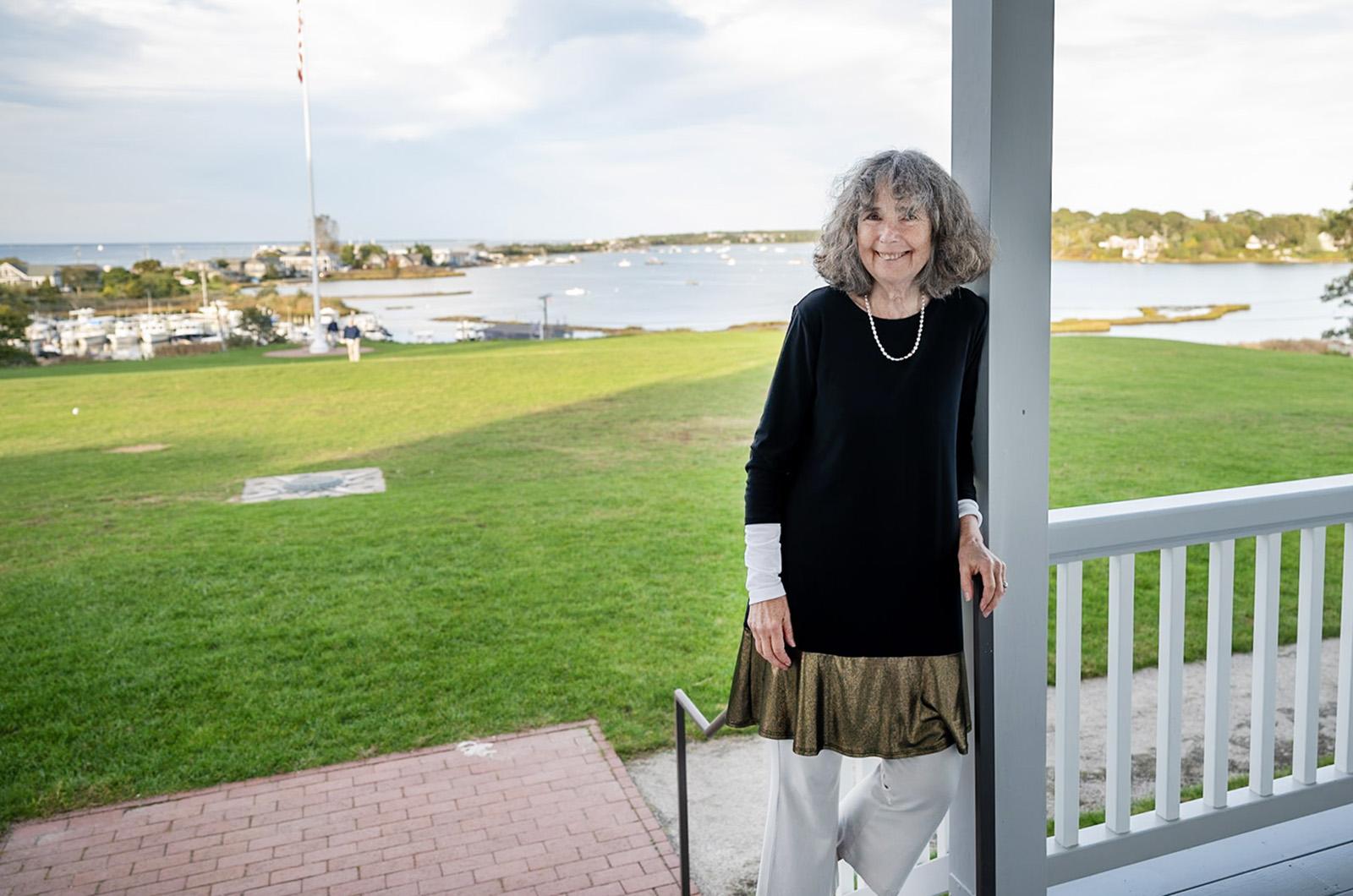Linsey Lee’s career spans 35 years as the oral historian at the Martha’s Vineyard Museum. The impact of those years, however, spans generations, having documented and given voice to hundreds of Island stories by the Vineyarders who lived them.
On Friday at the museum, Ms. Lee told her own story, interviewed on stage by her longtime friend and NPR correspondent Mara Liasson. Ms. Lee will retire next month from the museum, but she told the crowd assembled that she plans to continue collecting oral histories and preserving voices and stories of everyday Islanders.
Ms. Liasson introduced Ms. Lee with a story of how they met in 1976. Ms. Liasson’s first article she ever wrote as an intern with the Vineyard Gazette was an interview with Ms. Lee, who had just written and illustrated a book about edible wild plants on the Island.
“Linsey Lee basically invented Martha’s Vineyard oral history, and she’s created a living archive of stories told in the first person through audio and video and print,” Ms. Liasson said in her introduction.
Ms. Lee has published with the museum a three-book series titled Vineyard Voices, a fixture in many Island homes, as well as short films with the narratives.
In the introduction to her first edition of Vineyard Voices, Ms. Lee wrote: “There is a beauty in the way people of the Vineyard speak; their stories told with a cunning turn-of-phrase, a rapier wit, an economy of language usually absent from modern discourse.”
It all began with Gratia Harrington and Craig Kingsbury.
Ms. Lee told the crowd that her experience with Mr. Kingsbury, a local raconteur who was Robert Shaw’s inspiration for Quint, the grizzled shark hunter in Jaws, as an example of how unique oral history is and how it might not be factually true, but it’s true for the teller.
“The story is with the teller... because it’s not actual, but it does give you a real sense of what a community is like [and] what a person is like,” Ms. Lee said.
Ms. Lee moved to the Vineyard full-time in the 1970s. She held a variety of jobs, including working at Scottish Bakehouse, shucking scallops and designing exhibits for the museum. While working and getting to know the Island, she started thinking about recording stories from the various people she encountered.
“Some of their personal stories about their life brought the Vineyard history alive to me in a way that nothing else had,” she said in her talk.
During her career, Ms. Lee has recorded every facet of Island life, from Wampanoag Tribe members to fisherman, business owners to veterans. She said she takes a piece of every person’s story with her.
“All the people I talked to, some of them had not talked about their war experiences until I talked to them, and I think they found it really cathartic,” she said. “To hear the details and hear the different stories...it can be kind of fascinating to hear both the horror and to hear the courage.”
Oral history brings something different than written history, according to Ms. Lee. She referenced Chilmark fisherman Eric Cottle and played a clip of his interview for the audience. Mr. Cottle talked about what fishing was like when he was growing up, which looks much different than modern day.
“I’ve read articles about changes in fishing, but somehow [hearing] his personal pain just made me understand so much better,” she said.
Ms. Lee has been working with local schools and community programs to encourage the younger generation to continue collecting stories.
“For some kids, they were really good at doing the camera work,” she said. “Some kids were really good at asking the questions and some kids were really good at putting the exhibit together afterwards,” she said. “It was really exciting...and I was told by a number of parents that it got them excited to be going to school.”
Ms. Lee said that despite her impending retirement, she has no plans on slowing down.
“I want to do another book because there are so many people that I have interviewed just since the last one came out,” Ms. Lee said. “These stories are wonderful that they need to be made [into a book]. A book is a good way to make it accessible to people and these stories need to be put onto paper.”








Comments (3)
Comments
Comment policy »